-
Embot's Lament by James Patrick Kelly
This story from a veteran writer of the magazine combines an interesting concept of time travel with a very contemporary story about a womans escape from an abusive relationship.
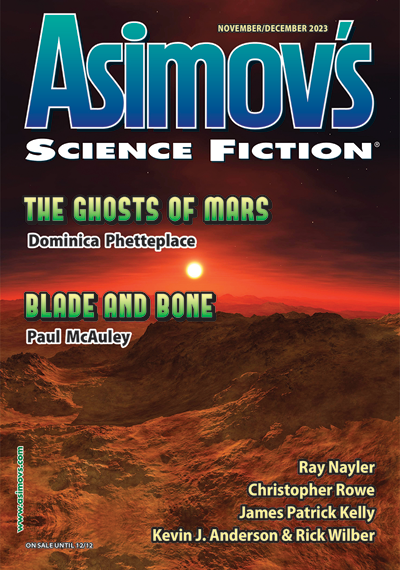
The story is told by some loosely defined entity from the far future residing passively in the mind of a young woman named Jame living somewhere in the US. The entity is not allowed to influence Jane or make its presence known, but it has a mission to observe and record her life. The reasons for this is unclear, even to the entity, who is silently complaining about not getting a more interesting subject to monitor.
Jane is living a rather poor life with an abusive husband, but after yet another violent outburst from him, she decides to try and flee with little plan or preparation. The entity gets excited and feel sympathy for her situation, so unsurprisingly it makes its presence known to her.
It is a rather simple story with a main character that is easy to feel sympathy for and we really want her to succeed within this little drama that takes place in the span of half a day. While the science fiction element never becomes much more than literally voices in Jane’s head, I find the general concept intriguing and actually wanted the story to go on for longer, but it is also just fine the way as it is.
Read in Asimov’s November/December 2023
Rating: 4 -
Apollo in Retrograde by Rosemary Claire Smith
This is a followup to “Next Frontier” from the July/August 2021 issue which sets up an alternate history about the space race, where events fold out a bit differently with another group of people as the first Americans on the moon - a woman being one of them.
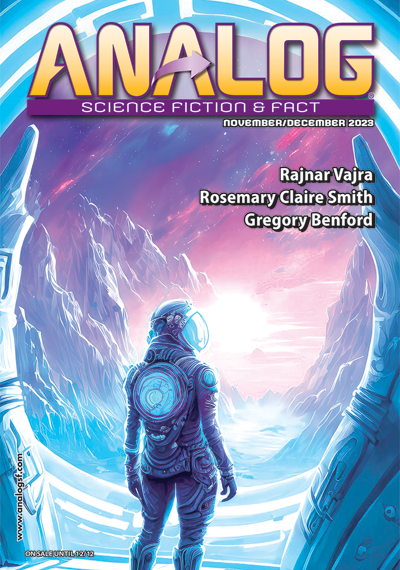
This continues the believable representation of the inner workings of NASA and how the moon program could have turned out differently, not unlike the Apple TV show “For All Mankind”. The US and the Soviet Union is heavily competing in getting a more permanent foothold on the Moon and Natalya is returning to the Moon for another mission. But something goes wrong on a nearby Soviet mission, so their trip is turned into a rescue mission of a Soviet cosmonaut.
The first half is NASA politics and the second half is a pretty standard space rescue mission type story. It is decent story with solving engineering and people type of problems, and seeing an alternate timeline of the Apollo program has potential for a world history that develops differently. We see glimpses of that here, but it is still primarily a typical rescue story.
Read in Analog November/December 2023
Rating: 3 -
Robots Through The Ages
This anthology published in 2023 is fairly true to its title by collecting 17 stories about robots from 1899 to the present day. Some would probably argue that not all stories are technically robot stories, some are on the fringe on that definition, but the stories also shows how the concept of a robot has changed throughout the years in the science fiction genre.
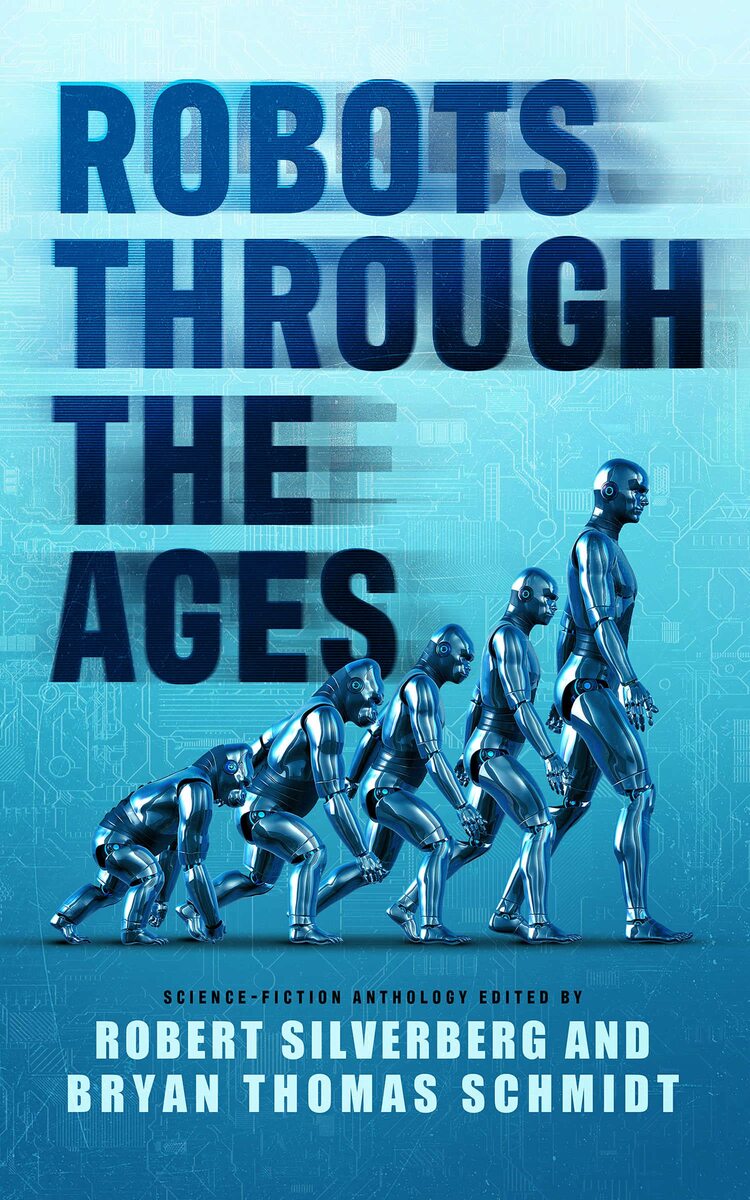
The stories are mostly chronological, with the exception of the first one which is a new story from 2023 and an original for this anthology. “Perfection” by Seanan McGuire is sort of modern fable that takes the concept of a robot into a more metaphorical sense and using it to tell a story about creating the “perfect” human specimen. It is bit of a bold choice to start off the anthology with something a bit different, but I think it does set the concept of showing an example what “robot” can mean in a 2023 story - before going back to 1899 for the second story. “A Night at Moxon’s” by Ambrose Bierce is more like a proto-robot story, but a decent little mystery type story about a chess automaton - which were a thing in the late 19th century.
The anthology has 10 stories from before 2000 and 7 after. I did find the older stories to be most worthwhile reading, with all time classics like “With Folded Hands” by Jack Williamson, “Second Variety” by Philip K. Dick and “For a Breath I Tarry” by Roger Zelazny.
“With Folded Hands” is a great story that is basically a depiction of the saying that “the road to hell is paved with good intentions”. Also not overly dated and easily works as a metaphor for AI advancements today. Reminded me of the Nancy Kress story “Nano comes to Clifford Falls” where machines also takes all the joy out of humans.
“Second Variety” is a chilling story with an apocalyptic atmosphere that is very well made, especially when it evolves into a mix of The Terminator and The Thing paranoia - even to an extent into Battlestar Gallactica terrority where it is impossible to discern humans from robots.
“For a Breath I Tarry” is another story that has aged impressively well. It deals with a somewhat tired trope about robots wanting to “be” humans is, but here it is done using the methodology and logic of a machine, which I really appreciated. Also amazingly spot on in how current AI machine learning models work with basically processing endless amount of data on humans. Today more than ever, the philosophical question of whether human experience can be deduced to nothing but data processing is very much relevant. I could have lived without the sort of Adam and Eve like ending, but the quest for collecting human experiences through data collecting and expatriation with art (another concept that isn’t far off from current AI picture generators) was really enjoyable to read.
It is weird to have a robot anthology without a story by Asimov, but I don’t actually miss it. His robot stories are likely well known by most science fiction readers and have been reprinted countless times already. Asimov is present though, in the satirical story “Dilemma” by Connie Willis where Asimov himself serves as some sort of reluctant oracle on how to deal with real robots and their problems with the three laws. Reasonably funny.
I didn’t enjoy the more recent stories as much, with a couple of them feeling like they are part of a series. All in all it is still a good anthology that lives up to its title by present a variety of stories showing the evolution and changes of robots throughout more than a 100 years.
-
Wasted Potential by David Lee Zweifler
These days with various AI models on the rise, many people are thinking about if AI will take our jobs. This humorous story, but with a serious undertone, presents an AI controlled future where their algorithms are finding suitable jobs for humans.

Elliott’s coffee machine is its own AI sentient being with personal boundaries and frank opinions about Elliott. The story is mostly him arguing with it one morning about his life and job prospects. In this future a quantum computer finds jobs based on all the known data on a specific individual. Elliott is not happy with all the boring and uninspiring jobs he gets offered. He also feels guilty, because he feels like he is responsible for holding his girlfriend back since she get plenty of off-World job offers, but choose to stay with him.
This little dilemma wraps up rather nicely and everything is charming and amusing, but I do think there are subtle almost dystopian themes explored here about how the present massive data profiling on everyone of us could develop and be used for in the future. With the current exponential growth in AI models, we really have very little control over what the vast amounts of data on us will be used for in the future. Amusing story with some food for though.
Read in Analog November/December 2023
Rating: 3+ -
Timothy: An Oral History by Michael Swanwick
This story is comprised of various letters or notes by different people which forms a narrative about a future after a “rapture” that apparently removed all genders except female from Earth - and the status quo is disrupted when someone has a male daughter.
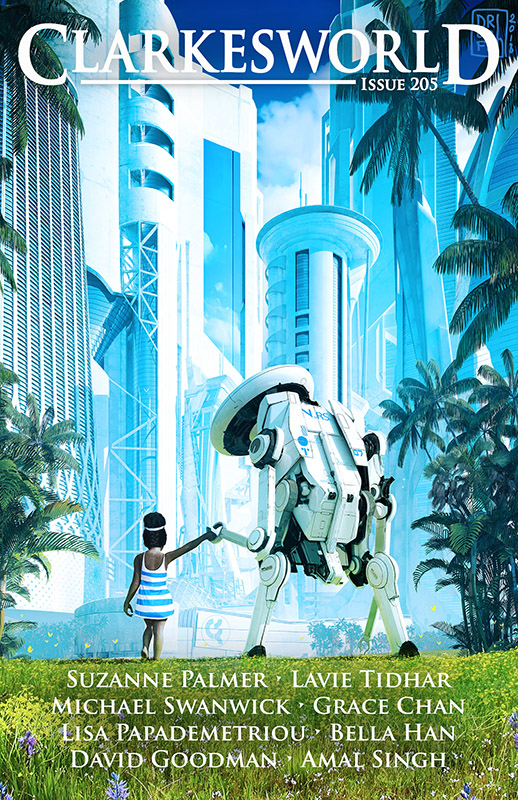
This female with male genitals - as Timothy is described since the story is devoid of any male pronouns - tries to live a normal life but unsurprisingly also gets a lot of negative attention. The existence of Timothy creates public debate about gender roles and the apparent dangers of reintroducing male genes into the population.
Swanwick creates an interesting and layered future world in less than 4000 words. The structure of having just small notes from different people allows the reader to assemble the details without the need for artificial exposition. The letters feel natural within this very different future.
This story caused a bit of a debate on the Clarkesworld Discord server, which made me reread it since I didn’t make much of a note of it the first time. I think it is a well written story that infers some thoughts about gender-roles in the reader. But it still mostly built on a binary view of gender and thus it doesn’t really break any new ground in 2023. It doesn’t do much more than Le Guin and Tiptree did about 50 years ago.
However, the ending sums things up rather nicely.
Who was I? Okay, I knew I was male, but what did that mean? The only people who could have told me died hundreds of years ago. The experts said all kinds of things about male women. All with absolute conviction. Meanwhile, I had no idea what a man was like—and I was one!
That was then. Now all that matters to me is being a good father to my child. Whatever that might mean.
Read in Clarkesworld October 2023
Rating: 3+ -
The 1990 Annual World's Best SF
This anthology was the last of the years best Donald A. Wollheim did before his death. It collects 12 stories from 11 different authors published in 1989.
Sidenote - what is it with yearly anthologies and their names? This has 1990 in the title but covers stories from 1989. Other anthologies are just numbered, which doesn’t help at all with figuring out which year it covers. For example, there exists a The Best Science Fiction of the Year 6, a Year’s Best SF 6 and a The Best Science Fiction of the Year Volume 6 covering stories from the years 1976, 2000 and 2020. There must be a more userfriendly way to name these collections.
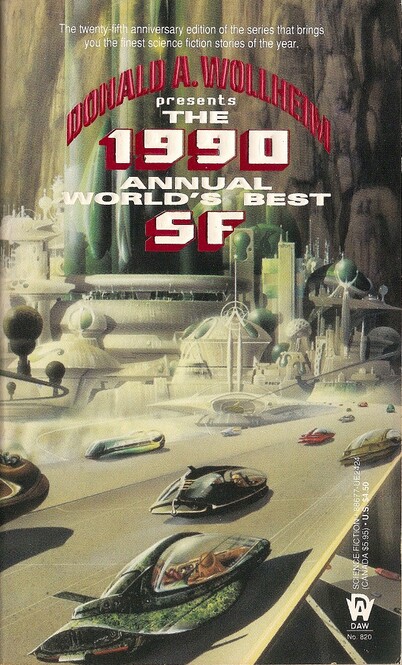
With that little rant out of the way, the stories presented here are from highly regarded well established authors at the time - like Robert Silverberg and J. G. Ballard - and a few names that were relatively newcomers to the field - Lucius Shephard and Judith Moffett.
The fiction starts of with “Alpha” by Gregory Benford which was merely so-so in my opinion, but still a decent start with some hard sf. We continue with “The Magic Bullet” by Brian Stableford about a professor who discovers a way to achieve immortality in mice. Just only female mice. Robert Silverberg has two stories in this collection and the first is “Chiprunner” - a strange and very sad story about a young boy with an eating disorder. He is obsessed with computers and through therapist sessions (the story is told from the therapists point of view) he reveals that he wants to shrink himself to the atomic level so he can become one with the computer chips. Even though the story is more metaphorical than literal, it still has a clear science fiction feel to it. The second Silverberg story “A Sleep and a Forgetting” deals with the sort of time travel that only allows for communication to the past not travel. Here someone ends up talking to Ghengis Khan - and maybe end up changing history.
“Abe Lincoln in McDonald’s” by James Morrow is to be taken quite literally in what happens, but not without something deeper to say about slavery and racism. “In Translation” by Lisa Tuttle tells a story about a man who becomes so obsessed with visting aliens that he forgets all the human relationships around him. “Not Without Honor” by Judith Moffett also deals with visiting aliens and they are apparently mostly interested in the old TV show The Mickey Mouse Club.
Orson Scott Card delivers a classic cyberpunk tale in “Dogwalker” in a high tense plot involving clever ways to deduct peoples passwords. The anthology ends with “War Fever” by J. G. Ballard about a terrible war that never ends, but with a macabre reveal at the end. Without spoiling too much, it reminded me a good deal about a famous story by Scott Card.
In conclusion, mostly a decent collection of stories, but nothing really stellar or stories that I see myself coming back to. Could be either Wollheim’s selection or that 1989 wasn’t a particular amazing year. But looking at a list of stories from 1989 sorted by citations, there are several very popular stories that Wollheim have omitted.
-
Peer Review by Andrew Sullivan
Shakthi is a Ph.D. student in physics and her professor has told her to locate a specific article from the 70s in the library. However, hidden in the aisles of the library she sees an elderly man eating pages from a journal. Which turns out to be the exact article she was supposed to find. This leads her down a path where she uncovers a decade long feud between two men over a disagreement on a specific Einstein theory.
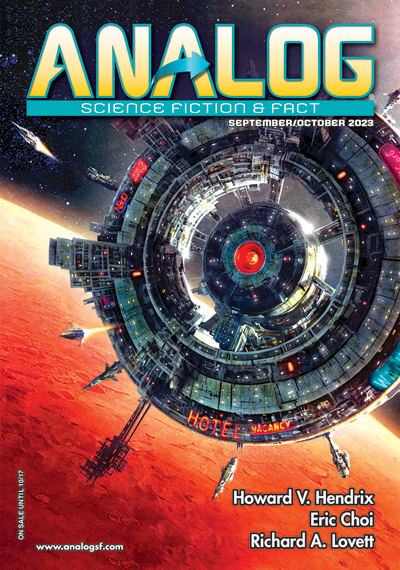
Without revealing too much the story goes into time travel territory. It is full of scientific jargon that at least feel authentic, the university setting is convincing and both young Shakthi and the older feuding physics professors are well rounded colorful characters. The time travel stuff is clever and not overly convoluted as it can often get with time loops, but the first half of the story is held down a bit by a good amount of exposition and Shakthi mostly serves the observer role until much later.
Overall a fairly good read in the style that can only be found in Analog.
Read in Analog September/October 2023
Rating: 3 -
The John Varley Reader
John Varley is a writer that really excels in the short story format in my opinion. He also won most of his award for short stories. This collection is packed with 18 stories - all accompanied with a lengthy introduction by Varley.
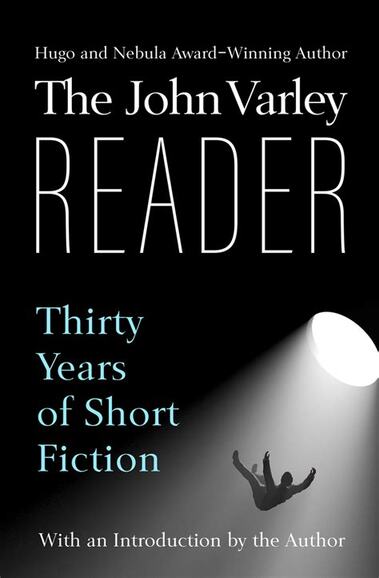
Reading this collection definitely gives the impression that Varley lived through the sex, drugs and rock’n’roll era. Lots of stories deal with experiments with sex and drugs in some form at least. It is especially apparent in the various Eight World stories where biological gender swap is widely available. In The Phantom of Kansas the protagonist ends up having sex with a gender-swapped clone of herself, and in Options a married couple has to deal with how their relationship changes when both are biological male.
There is also stories like The Persistence of Vision where Varley becomes almost philosophical, where a man wandering a somewhat devestated USA comes accross a community of deafblind people who has developed a unique way of communication through touch. In Press Enter we get a lovely 80s cyberpunk-ish murder mystery story with overpowered hackers and a clever notion whether a computer program could be used in court as evidence for a personal signature. In The Barbie Murders we also get a clever murder mystery, with the added complication that victim belongs to a cult of identical “Barbies” without individuality, making it impossible to frame an individual killer.
There are hardly any bad stories in this collection and the various anecdotal stories Varley tells as introductions to each story, is also worth the time.
-
Window Boy by Thomas Ha
Writing a short story that tells more with fewer words is very hard to pull off. Most writers needs a bit more length and there is nothing wrong with that. I prefer novelettes for that reason. Which makes it even better to read a proper short story at merely 4300 words that is the exception.
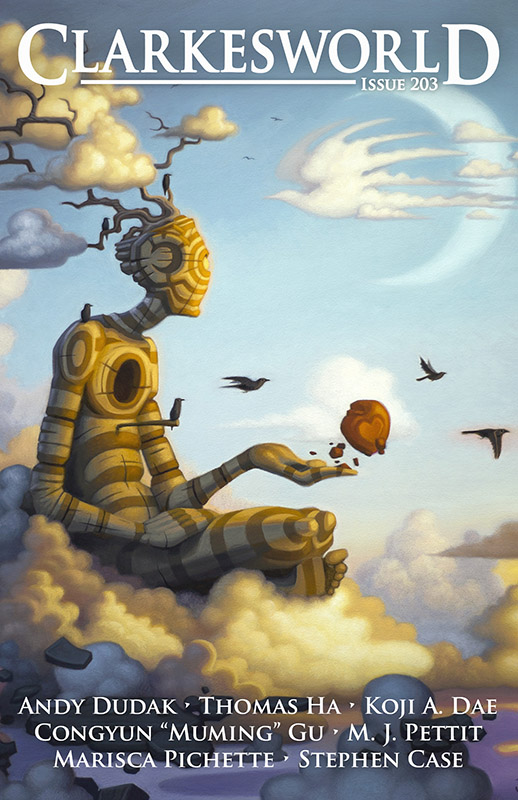
The story is set in mostly undefined post-apocalyptic world and told by a young boy, Jakey, who lives with his parents in an underground safe house. His father works from home in some high end job and it seems like the only interactions they have with the outside world is through delivery workers. Jakey observes the outside world through a “window” - which is implied is merely a screen and a camera. He talks with another boy on the outside who asks Jakey to let him sleep in their yard, so he can be safe for just the night.
There is not a lot of plot going on here, and the story mostly deals with Jakey and his pondering about his privileged status in this world and whether he is ready for school now. It is a story where most is said between the lines and we get a haunting impression of this world with extreme divide of people who can live in safe houses and those that are left to themselves in the unsafe outside world.
What makes this story special is that Jakey clearly doesn’t know any better. He does seem to have some compassion for the boy outside, but he doesn’t truly understands what kind of life he lives. There is not some morally savior complex going on and while it is easy to read this as a symbol for how the first world countries treats the third world countries, the reader is left to ponder those questions themselves. It is not one of these story with a “point” to make.
I would be surprised if this doesn’t at least come up in some of the various best of the year lists or awards.
Read in Clarkesworld August 2023
Rating: 5 -
In Translation by Lisa Tuttle
Aliens are here and Jake becomes so obsessed with them that he neglects the human relationships he has.
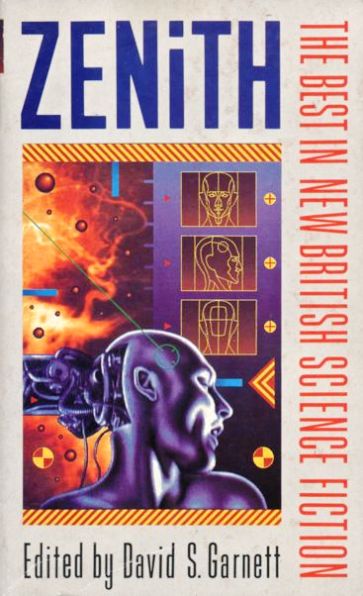
The aliens are only the backdrop here as we and Jake only get literal glimpses of them (they are described as being transparent and ghostlike). They are mysterious and only a few people seem to be able to communicate with them. Our protagonist Jake manages to ruin his marriage with his obsession with these aliens. He moves to where the aliens have settled down and even meets a new female companion who is also very much into the aliens. But so much as him so he ruins that relationship as well. He manages to get in some sort of contact with the aliens through a woman working as a translator. The aliens never reveal or say anything useful, and the translator tries to connect with Jake instead but he can still only think about the aliens.
The aliens being aliens here doesn’t seem overly important, since they most work as a metaphor as something one can’t have and letting an obsession over something unattainable get in the way of real human connections. I am not really sure there is any deeper moral than that to this story. It is decently well written but somewhat lacking as a science fiction story.
Read in The 1990 Annual World’s Best SF
Originally published in Zenith: The Best in New British Science Fiction
ISFDB Link
Rating: 2+